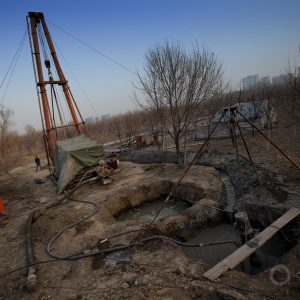The Stream, June 16: Maharashtra Studies Plan To Link Dams
The Global Rundown
Maharashtra, one of the states most severely affected by India’s drought, is considering a plan to link a number of major dams and manage them through a centralized distribution system. Wastewater from fracking operations in the United Kingdom may be released into the sea after treatment. The U.S. Environmental Protection Agency banned the disposal of fracking wastewater at public treatment plants. Zimbabwe is expanding the capacity of electricity generators at its Kariba hydropower plant. Thousands of children in Hyderabad will be vaccinated against polio after the virus was found in wastewater.
“We will capture and contain it, treat it back to the standards agreed … with the Environment Agency and discharge where allowed under permit, most likely the sea.” –Tom Pickering, director for Ineos Shale, on the possibility of discharging wastewater from hydraulic fracturing operations in the United Kingdom into the ocean. (Guardian)
By The Numbers
350,000 children Number in Hyderabad, India who will be vaccinated for polio next week after a strain of the virus was discovered in the city’s wastewater. Associated Press
300 megawatts Electricity generation capacity that will be added by two new generating units under construction at the Kariba hydropower plant in Zimbabwe. The first unit is expected to come online in December 2017. Reuters
Science, Studies, And Reports
The government of India’s drought-hit Maharashtra state is studying a plan to link all of the major dams in the Marathwada region and create a centralized water grid to manage distribution throughout the system. Officials also called for water to be transported through pipes, rather than open canals, to reduce evaporation losses. The Indian Express
On The Radar
The U.S. Environmental Protection agency finalized a new rule this week that bans hydraulic fracturing companies from disposing wastewater at public treatment plants. The EPA called fracking wastewater “potentially harmful” and noted that treating it effectively is typically beyond the capabilities of municipal treatment plants. State Impact
A news correspondent for Circle of Blue based out of Hawaii. She writes The Stream, Circle of Blue’s daily digest of international water news trends. Her interests include food security, ecology and the Great Lakes.
Contact Codi Kozacek





